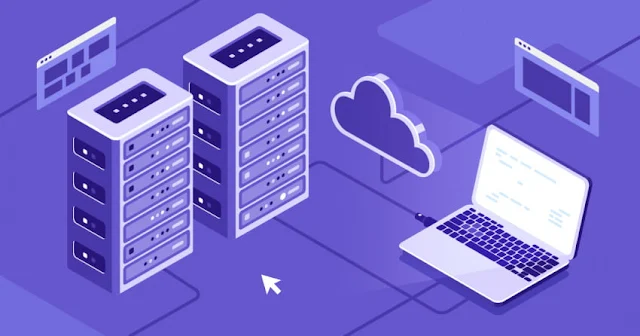
What is Search Index? The Importance of Indexing for SEO
Learn what Google Index is, its impact on SEO, and how you can speed up the Indexing process with Instant Indexing to boost your site's visibility.

When you publish content online, you likely want it to be discovered by search engines like Google. But how does Google find and display your website in search results? The answer lies in Google Index. This process is crucial to SEO (Search Engine Optimization) because it determines how and when your content appears on Google’s search engine results pages (SERPs). In this article, we will explore Google Indexing, the importance of being indexed, and how you can speed up Instant Indexing to boost your site’s visibility and rankings.
What is Google Index?
In the world of Search Engine Optimization (SEO), Google Indexing refers to the process by which Google discovers, crawls, and stores web pages to be included in its index. Google’s index is a massive database that holds all the information about the web pages it has crawled and deemed worthy of ranking in its search results. When a page is indexed, it means that Google has analyzed the content and deemed it relevant enough to be displayed when users search for related queries.
To understand Google Indexing, think of it like a library where every book is a webpage, and the library catalog is Google’s index. When a user looks for a specific book (or web page), Google searches its catalog to find the most relevant results and presents them.
How Does Google Indexing Work?
Google’s Indexing process involves several steps:
- Crawling: Google uses bots (often called Googlebot) to visit websites and crawl their pages. These bots follow links from one page to another, gathering data about the content and structure.
- Analyzing: Once a page is crawled, Googlebot reads and analyzes the content. It looks at key factors like keywords, metadata, page load speed, and backlinks to understand what the page is about.
- Storing: After analyzing the content, Google stores the information in its index, a large database of all the web pages Google has crawled.
- Ranking: When a user submits a query, Google searches through its index to find the most relevant results. It uses ranking algorithms to determine which pages are most likely to provide useful answers to the query.
Without being indexed, a webpage cannot rank on Google or be visible in search results. Therefore, getting your pages indexed is a crucial part of any SEO strategy.
What is Instant Indexing?
In the past, Google Indexing could take time—sometimes days or weeks—before new content would appear in search results. However, with the advent of Instant Indexing, webmasters can now submit their URLs directly to Google and speed up the process of getting content indexed.
Instant Indexing is beneficial because it allows new content to appear in search results almost immediately, helping to drive traffic to your site faster. While Google still uses its standard crawling and indexing methods, Instant Indexing can significantly reduce the delay between when you publish a page and when it becomes visible in search results.
To enable Instant Indexing, you can use tools such as the URL Inspection Tool in Google Search Console or integrate the Instant Indexing API to help speed up the process for your pages.
The Importance of Google Indexing for SEO
For any website to perform well in search results, it needs to be indexed by Google. Here’s why Google Indexing is so important for SEO:
-
Increased Visibility: Only indexed pages will show up in Google’s search results. If your site isn’t indexed, no one can find it through organic search. SEO efforts like keyword optimization, quality content creation, and backlinks will not help if your pages are not indexed.
-
Faster Updates: Instant Indexing ensures that any new content you publish, such as blog posts, product pages, or news articles, is indexed and displayed to users quickly. This is especially important for time-sensitive content that needs immediate visibility.
-
Better User Experience: When Google indexes your content properly, it is more likely to be presented to users who are actively searching for topics you cover. This means more qualified visitors coming to your site.
-
Search Engine Rankings: If your pages are not indexed, they cannot rank for relevant keywords. Once indexed, Google Indexing will allow your pages to be ranked based on their relevance and quality, improving your chances of appearing at the top of the SERPs.
How to Ensure Your Website is Indexed by Google
Getting your website indexed by Google is a relatively simple process. Here are some effective strategies:
-
Submit Your Site to Google Search Console: One of the first things you should do is add and verify your website in Google Search Console. This tool allows you to monitor how Google crawls and indexes your site, and it also gives you the ability to submit your URLs for Instant Indexing.
-
Use Sitemaps: Creating and submitting an XML sitemap to Google Search Console helps Googlebot understand the structure of your site and find all the pages that need to be crawled and indexed.
-
Internal Linking: Ensure that your content is easily accessible by adding internal links to important pages on your website. This helps Googlebot discover and index your pages more efficiently.
-
Create High-Quality Content: Google is more likely to index pages that provide value to users. Focus on creating unique, informative, and engaging content that answers user queries.
-
Use Structured Data: Adding structured data (schema markup) to your website helps search engines understand the content of your pages more effectively, improving the chances of indexing and ranking.
-
Ensure Mobile-Friendliness: With mobile-first indexing, it’s essential to have a responsive design that works well on all devices. This ensures that Googlebot can easily crawl and index your site.
-
Optimize for Speed: A fast-loading website is crucial for user experience and SEO. Googlebot prefers pages that load quickly, which can help with the indexing process.
Conclusion
Google Indexing is a fundamental aspect of SEO that ensures your content is visible to users searching on Google. Without proper indexing, your pages cannot rank or generate organic traffic. By using tools like Google Search Console, submitting XML sitemaps, and optimizing your website for speed and mobile-friendliness, you can improve your chances of getting indexed quickly.
To speed up the process, Instant Indexing and other techniques can help you get your new content into search results faster, driving more traffic to your website. Focus on creating quality content, optimizing for SEO, and ensuring your site is accessible to Googlebot to maximize the benefits of Google Indexing.





.jpg)